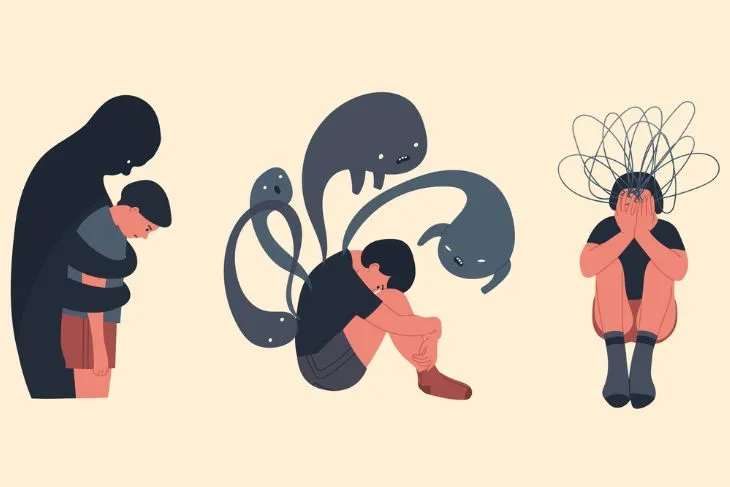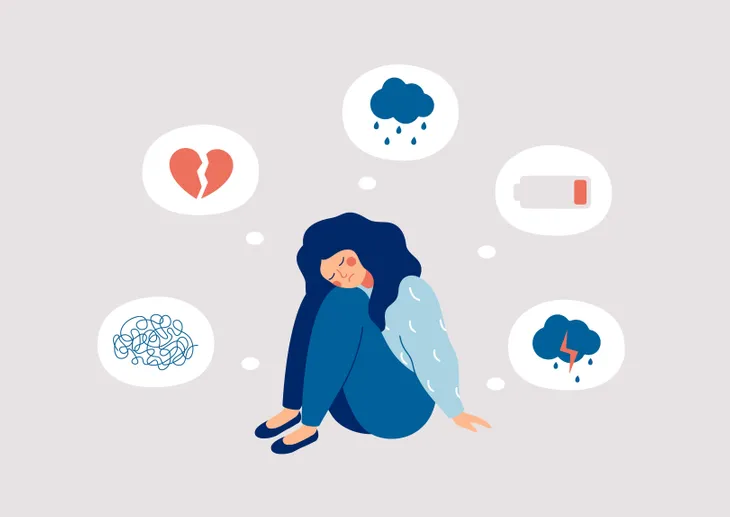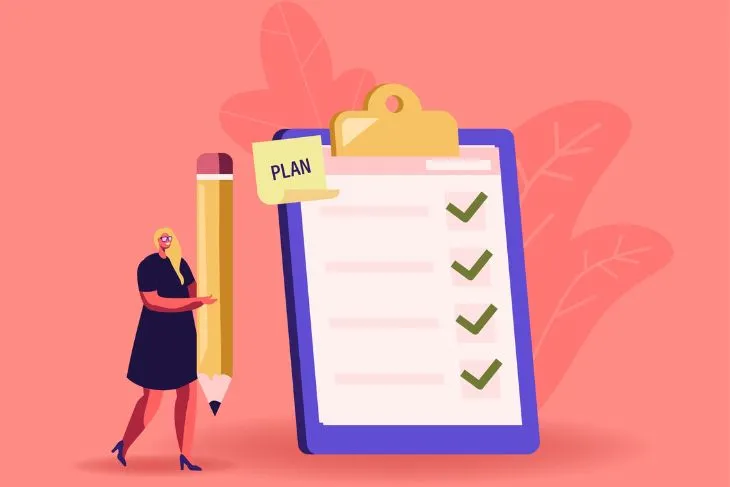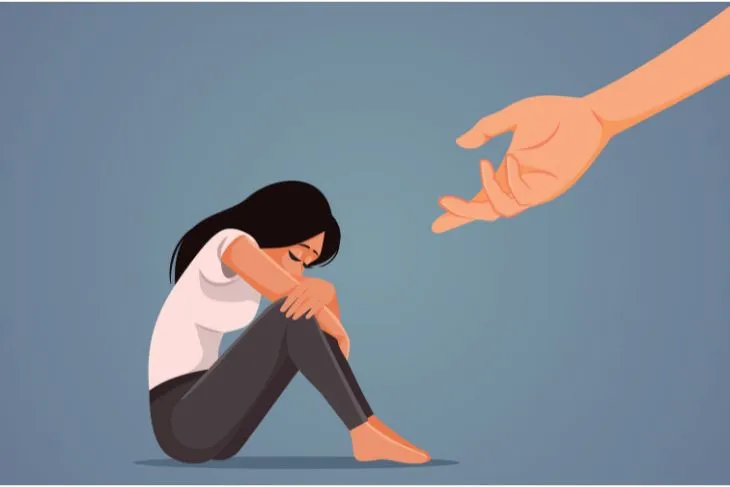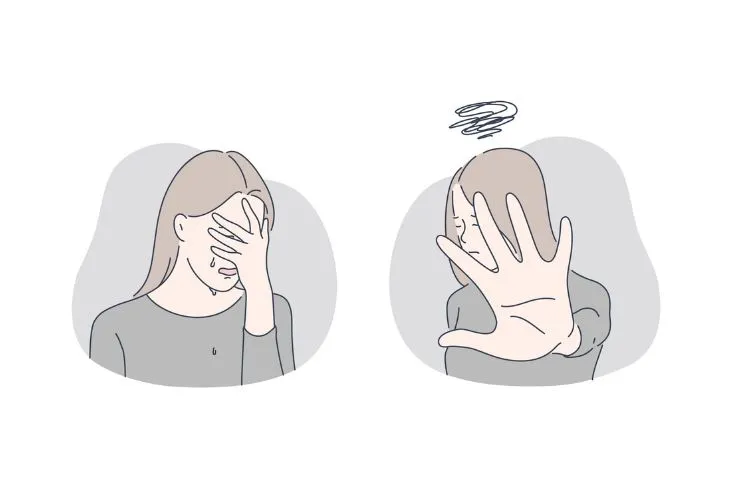- Mental illnesses are conditions involving changes in emotion, thinking or behavior (or a combination of these).
- A mental health intervention is when family and friends gather together with the goal of discussing treatment options for an individual’s mental illness or trauma.
- It’s important to hire a specialist who can help, create a group of close loved ones, plan meticulously, rehearse, and follow through.
- Don’t give up, even if they reject help.
Mental health doesn’t receive the same recognition and care as physical health, but it should. A person who’s suffering mentally is just as helpless and in need of support as someone who’s physically ill. Unfortunately, it can be much harder to recognize and treat mental illness because the one receiving help needs to be open and willing which isn’t always the case.
Since mental health is such a sensitive subject matter, it’s important to conduct these types of interventions in the most effective way possible. This will help get them to listen to concerns from loved ones and respond accordingly. With that being said, here are some tips on how to stage a mental health intervention…
What is Mental Illness?
A mental health diagnosis is hard not only for that person, but it can also be difficult for their friends and family. The best thing to do is support them, particularly in times of need. So what first let’s decipher what mental illness is. According to the American Psychiatric Association, “mental illnesses are health conditions involving changes in emotion, thinking or behavior (or a combination of these). Mental illnesses are associated with distress and/or problems functioning in social, work or family activities.”
The same source also notes that mental illness takes many different forms. It can range from being depression or anxiety, to more severe forms like schizophrenia, or anywhere in between. The symptoms of these conditions vary with some only experiencing minor impairment while others lose the ability to even leave their house or take care of themselves. “If they are unable to accept their diagnosis or follow a treatment plan, then it’s time to stage a mental health intervention,” writes Interventions 911.
Who Needs a Mental Health Intervention?
The unfortunate thing about mental illnesses is that people who have them often suffer in silence because they struggle to ask for help, notes the New Jersey Addiction Intervention. Because these conditions affect how they view themselves, they might not even think they are worthy of it.
It’s not easy to know when a loved one needs help, especially when they don’t ask. Plus, the signs of a mental illness can vary greatly depending on their specific condition. Overall, New Jersey Addiction Intervention says the following are general signs it’s time to stage an intervention:
- Prolonged depression accompanied by suicidal thoughts that stop them from living their day to day life
- Long-term social withdrawal that results in unhealthy and isolating behavior
- A lack of self-care and personal hygiene
- Making threats to harm oneself or other people
- Exhibiting psychotic, irrational, delusional, or violent bheaviors
- Showing signs of self-harm (i.e. starving oneself, cutting oneself, etc)
- Experiencing sudden and vivid auditory and/or visual hallucinations
How to Stage an Intervention
Hire a Specialist
Arguably, the most important thing to do is hire a professional. No matter how well intentioned a family or group of loved ones is, these types of interventions are out of their wheelhouse. Plus, in this situations, we can’t let our emotions get in the way. Sometimes we might feel like we are helping a family member when really we’re hurting them by enabling their behavior.
Hire an intervention specialist who can offer outside insight, and help plan, and eventually implement the intervention. These specialists are trained to execute these interventions in an effective manner by making sure they stay on track and move in a productive direction, explains Dunham House. They can also assist with any negative reactions that may arise.
Create a Group of Close Loved Ones
Choosing who to include in a mental health intervention is an important task that should be given great care and consideration. Take time to think of who they are closest to, who will offer constructive support, and most importantly, who will have the right intentions.
Most of the time these participants include family members and close friends. If any children or elderly relatives are involved, prepare them for any intense moments that might arise as the intervention unfolds, warns the Dunham House.
Pick a Time and Place
These details might not seem like a big deal at the time, but they can be a big factor in whether or not the intervention goes well. Obviously, you’ll want to try and pick a time when the person is in the right headspace. Don’t do it when they are stressed out, under the influence of drugs or alcohol, or preoccupied with other tasks and obligations, states the New Jersey Addiction Intervention.
When it comes to location, choose someplace where they will feel safe and comfortable. Respect their privacy by doing it in a private location. For example, the same source notes that a public restaurant is likely not a good choice. Instead, do it in the comfort of a home.
Plan, Rehearse, and Perform
A lot of planning is required before executing a mental health intervention and it needs to be done right in order for it to be successful. Since it’s hard to know how the subject will react, participants should plan and rehearse how they want to respond to each outcome. The more planning that is done ahead of time, the better the intervention will go.
“The person struggling with behavioral health is filled with fear, filled with anger. They can confront, and negotiate, and battle, and share anger all day. The great power of an intervention is we create an environment of safety and that person in a full-blown addiction has no defense against love,” says Brian O’Shea, CAI, MAAP, CSI, co-founder of Caring Interventions to Dunham House.
Have a Plan for What Comes Next
The hope is that in the end the subject will be willing to move forward with treatment. If that’s the case — great! There should be a plan in place for them on what steps they need to follow moving forward. You should know what time of treatment is needed and facilities they can go to. For example, do they need alcohol rehab, drug rehab, or a mental health assessment?
This is where working with a specialist comes in handy. They can help the group make a plan for several contingencies, if necessary. “It’s also essential for each group member to decide what they will do if the subject still refuses to get any professional help as a result of the intervention, and what their relationship with the subject will look like if that happens,” says the Dunham House.
Provide Accountability and Support
Your role goes far beyond just staging an intervention. You’ll need to provide accountability and support afterwards. The subject will need people to hold them accountable to the plan and support them through treatment as it’s likely going to be one of the more challenging phases of their life.
“Both accountability and support are important for successful treatment so that your loved one will be more likely to follow through on commitments made during an intervention,” writes the Dunham House. Even the smallest actions have a big impact. Check in after a couple weeks to see how their treatment is going or what they need in order to get treatment. Maybe they need a ride to and from? Have a conversation about their health. Essentially, just make yourself available to them should they need more support.
Types of Interventions
Relationship-Based Interventions (RBI)
RBI is an intervention characterized by interactions between parents and child. This is used for family interventions as it relies on parents and guardians to create a strong parental connection to their child that will have a positive influence on them. For example, “in children with autism and other mental illnesses, this method helps solidify the bond between parent and child so that the child sees their parents as a safe, emotional support system,” writes AMFM Mental Health Intervention Center. It can also highlight and avoid any co-dependencies that might cause issues down the line.
This type of intervention and therapy can help educate the family support system by giving them the tools to create a strong support system and show the subject that they have people they can depend on. When a person is struggling with mental illness, it’s easy for them to forget they have people that love and care about them. Sometimes all it takes is a little reminder and re-commitment from family to lead a person to get treatment.
Systemic Intervention
This type of intervention is a branch of system theory which suggests that environment, friends, and family all play a role in the development and status of a person’s mental illness. While this might sound like it’s blaming others, it’s not. It simply encourages everyone involved to consider that mental illness is multifaceted, explains AMFM Mental Health Intervention Center.
“For example, a person that comes from a drinking culture has a higher chance of developing depression. Consider as well, a person that comes from a household that enforces impossible expectations and the link between that environment and anxiety,” writes the source.
Systemic intervention tries to find, isolate, and treat the triggers that negatively influence a person’s life. An added benefit of this intervention type is that it can make the subject more aware of the influences in their life and which ones negatively impact their mental state.
Psychoeducational Intervention
The last type of intervention is called psychoeducational intervention. The basis of this intervention is to provide education and knowledge. It might be a good option for someone who is being first diagnosed with a condition or has recently been diagnosed and is struggling to live with their condition.
“Psychoeducational interventions have a focus on education the affected person about their illness, coping mechanisms, treatment, and triggers,” writes AMFM Mental Health Intervention Center. This type of intervention or at least the elements of it should be incorporated into any form of intervention.
What To Do If They Refuse Help?
Even if a family does everything right in an intervention a person can still refuse treatment. They might be unreceptive to hearing they have a mental illness or simply reject the notion that anything is wrong. If this happens, AMFM Mental Health Treatment Centers advises not to give up. You can still help them in other ways.
Have a back up plan. This might involve doing another intervention at a later date when they might be more receptive. Keep communication open and honest with that individual until they are ready. Also, work on finding a treatment center. Finding the right one takes a great deal of research and not all of them have the same specialty, adds AMFM. Talk to representatives, visit facilities, and get familiar with their programs.

